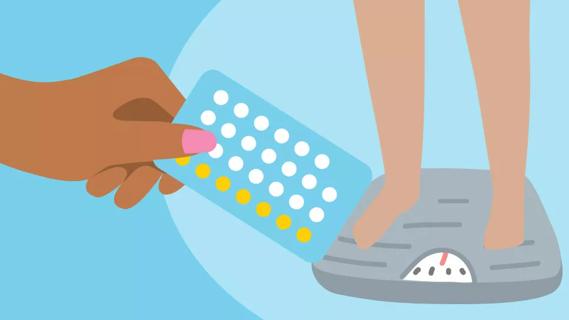The scenarios vary based on how many pills you’ve missed and whether you take a combination pill or progestin-only pill

If you’ve ever panicked about a missed birth control pill, you’re not alone. Life is busy and sometimes, we simply just forget to pop that tiny little pill.
Advertisement
Cleveland Clinic is a non-profit academic medical center. Advertising on our site helps support our mission. We do not endorse non-Cleveland Clinic products or services. Policy
There are a lot of questions around if and when you should take your birth control pill if you’ve missed a dose. What happens if you miss a day of birth control? Can missing a dose of birth control lead to pregnancy or breakthrough bleeding?
Ob/Gyn Ashley Brant, DO, MPH, discusses what to do if you forget a pill, your risk of pregnancy and other side effects to watch for.
You’ll first need to figure out what type of pill you take. There are two main types of pills:
When it comes to a combination pill and what to do if you miss a dose, the scenarios vary based on how many pills you’ve missed, Dr. Brant says.
Advertisement
Take the pill as soon as you remember. Then, take the rest of the pills like you normally would. To stay on schedule, this might mean that you have to take two pills in one day.
You might be asking yourself: Can I get pregnant after missing one pill? Back-up birth control or emergency contraception typically aren’t needed. But if you previously missed pills in the same pack, you should consider using a back-up method of protection, like condoms.
Take the pill you most recently missed as soon as you remember. Then, continue taking the rest of your pills like normal. For example, if it’s now Wednesday and you missed Monday’s and Tuesday’s pills, take Tuesday’s pill right away and take Wednesday’s pill at the usual time. Use back-up birth control or avoid sex until you’ve taken seven days of hormonal pills in a row. If you had unprotected sex in the last five days, consider using emergency contraception.
If you’ve missed three or more pills, it’s akin to having a hormone-free interval and you should restart the hormone pills and take one per day until you finish the pack’s hormone pills. Skip the placebo pills and start a new pack the next day.
If you haven’t been taking the pill for at least 21 days continuously, you should use back-up protection for seven days. If you’ve been on the pill for more than 21 days, then it can be treated like a normal pack hormone-free interval and you should simply restart the pill. Consider emergency contraception if you’ve had unprotected sex in the last five days.
Progestin-only pills are very time-sensitive.
What if you took birth control four hours late?
It’s considered “missed” if it’s been more than three hours since you should have taken your pill. A single missed pill means you’re at risk for getting pregnant.
Here’s what to do with a missed mini pill:
“Progestin-only pills work by thickening the cervical mucus, making it difficult for sperm to get through to the uterus,” explains Dr. Brant. “It can take about two days for the cervical mucus to thicken back up after a missed pill, so that’s why it’s advised to use back-up or emergency contraception with missed progestin-only pills.”
Dr. Brant says the general rule of thumb for the combination pill is to consider the 24- to 48-hour safe window. You can play catch up with missed pills before that, but after that time, the window has passed and you’re no longer protected against pregnancy.
Advertisement
If you’ve missed three or more days or if you haven’t taken a pill in 48 hours and have had unprotected sex in the last five days, it’s best to call your doctor and use an emergency contraception.
“It’s never wrong to reach out to your provider if you’re confused about what type of pills you take or what to do if you’ve missed multiple days,” says Dr. Brant. “They can help you decide what to do next.”
If you’re taking birth control pills for other reasons besides preventing pregnancy (like reducing cramps or managing acne breakouts), you don’t need to do anything besides get back on track. Missing a couple days of pills typically won’t affect the other reasons you take the pill if it’s not to prevent pregnancy.
The two biggest side effects for missing birth control pills are breakthrough bleeding (also known as spotting) and pregnancy. The hormones in birth control pills wear off in about 36 hours if you don’t continue taking them. After about a day and a half, your hormone levels will drop off, which can cause spotting.
Your chance of pregnancy will depend on how many days you missed and where in the pack you were. The main way that birth control pills work is by halting ovulation. Anytime you miss a pill, it’s a good idea to use a back-up method of birth control, just in case.
Advertisement
“You might also notice nausea if you missed multiple pills and then had to take two in one day,” clarifies Dr. Brant. “The higher dose of hormones can make some people feel queasy.”
In general, birth control pills are very effective at preventing pregnancy when used correctly. But when you miss a pill (or multiple pills), your chances of protection significantly decrease.
Where in your pack you missed a pill can make a difference in pregnancy risk. With the combination pill, missing a pill in the first week of your pack increases your chance of pregnancy more than missing a pill in the middle of the pack. This is because you just came off a seven-day break from the hormones to begin with, so there’s already a lack of them in your system.
Missing multiple pills and having unprotected sex equals a higher chance of pregnancy, especially during the last half of your pack or in the very beginning of a new one. At that point, it’s a good idea to use emergency contraception or contact your doctor.
If you’ve missed a pill and you’re nervous, it’s never wrong to use condoms as back-up protection. And remember, missing a hormonal combo pill (not the placebo or reminder pill) is what counts.
Talk to your provider if remembering to take your pill is becoming an issue. There are many effective forms of birth control out there — some that don’t require daily adherence.
Advertisement
The ring, the patch, the shot or an IUD are all great options if forgetfulness is getting the best of you.
“If you’d like to remain on the pill, try using an app on your phone to remind you, set an alarm or pair taking the pill with another daily activity, like brushing your teeth or eating breakfast,” suggests Dr. Brant.
Learn more about our editorial process.
Advertisement

The Yuzpe regimen is less effective than other forms of emergency contraceptives, and it’s associated with more side effects

Both are about equally effective when used properly — IUDs are long-lasting and don’t require you to think about them

Birth control medications are more than 99% effective, but only when used properly

Today’s birth control pills don’t usually cause depression — but hormones affect everyone differently

No, you can’t prevent pregnancy by douching after sex, having sex standing up or having sex only at the ‘safe’ time

IUDs can make your period lighter, heavier, irregular or stop it completely

Birth control gel is simple to use and an effective method for preventing pregnancy

Despite popular opinion, scientific research shows that most birth control methods don’t contribute to weight gain

Wearing a scarf, adjusting your outdoor activities and following your asthma treatment plan can help limit breathing problems

Your diet in the weeks, days and hours ahead of your race can power you to the finish line

When someone guilt trips you, they’re using emotionally manipulative behavior to try to get you to act a certain way